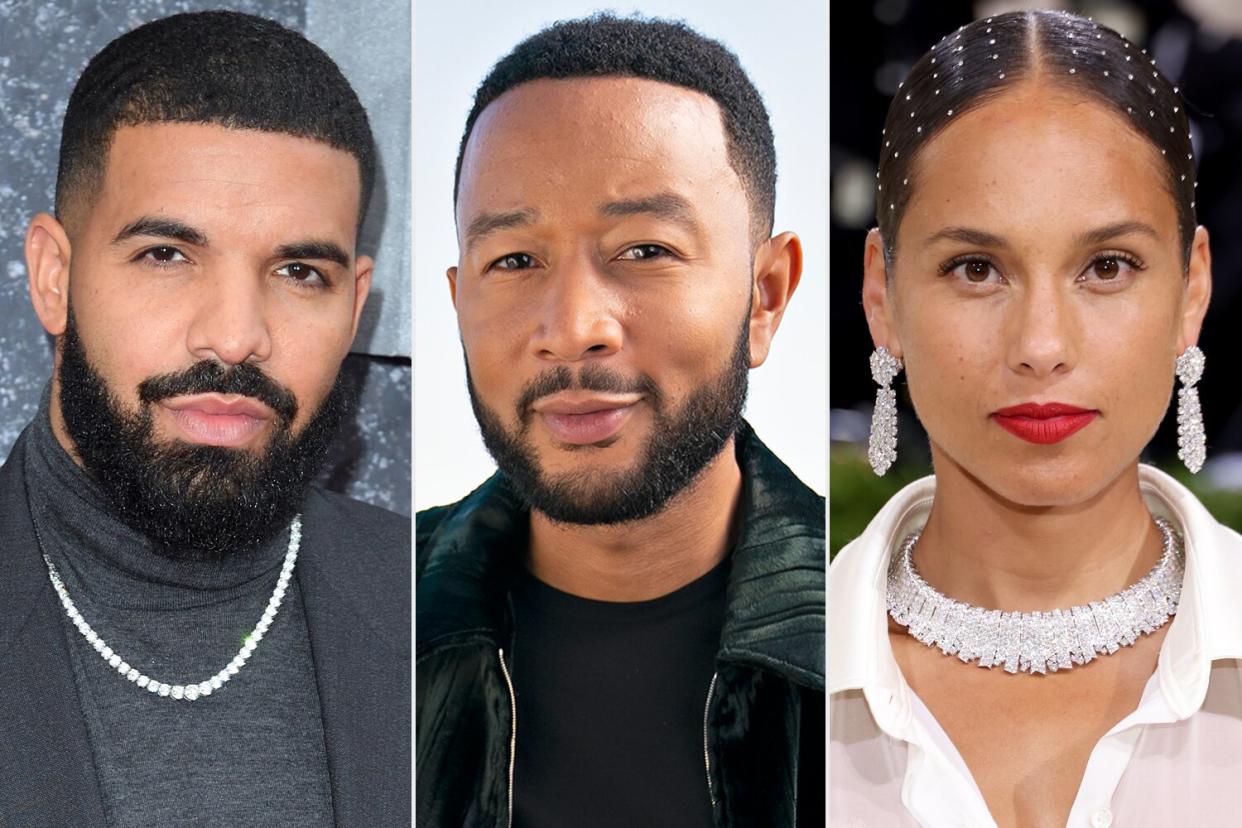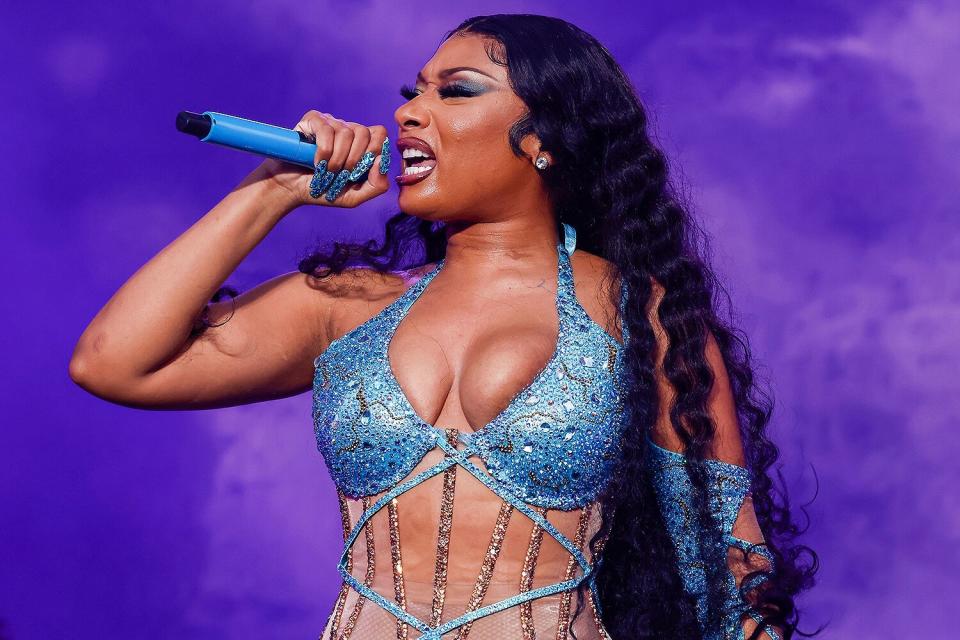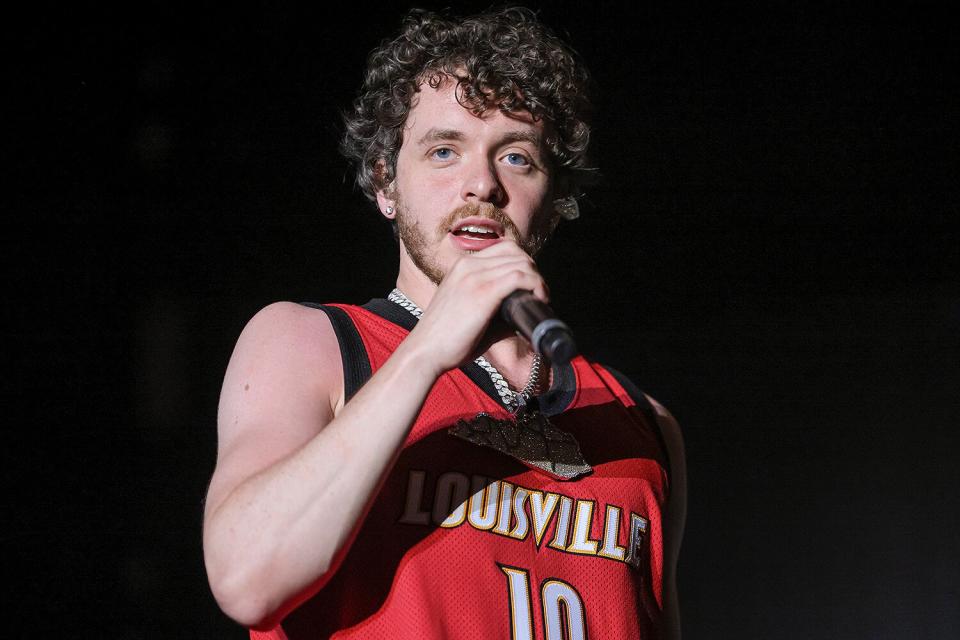Drake, John Legend, Alicia Keys Among Those Who Signed Letter Protesting Use of Rap Lyrics in Court

- Oops!Something went wrong.Please try again later.
- Oops!Something went wrong.Please try again later.
- Oops!Something went wrong.Please try again later.
- Oops!Something went wrong.Please try again later.
- Oops!Something went wrong.Please try again later.
- Oops!Something went wrong.Please try again later.
Karwai Tang/WireImage; Troy Harvey/ABC via Getty (2)
Drake, John Legend, Alicia Keys, 50 Cent and Megan Thee Stallion are among a group of artists, music industry executives and legal experts who signed a recent letter protesting the use of rap lyrics in court proceedings.
On Tuesday, the musicians added signatures to the "Art on Trial: Protect Black Art" open letter protesting the use of rap lyrics to criminalize Black artists, thereby intruding on — and, in a way, censoring — creative expression.
"In courtrooms across America, the trend of prosecutors using artists' creative expression against them is happening with troubling frequency," the letter reads. "Regardless of the medium — music, the visual arts, writing, television, film — fans implicitly understand that creative expression is rooted in what artists see and hear; it's a reflection of the times we live in. The final work is a product of the artist's vision and imagination."
Additional artists who signed the letter — which was published as an advertisement in The New York Times and The Atlanta Journal-Constitution — include Big Sean, Black Eyed Peas, Camila Cabello, Christina Aguilera, Coldplay, DJ Khaled, Jack Harlow, Lainey Wilson, Mary J. Blige, Michelle Branch, Normani and Travis Scott, among others.
Per the BBC, over the past two decades, hip-hop lyrics have been used as evidence in over 500 criminal cases in the U.S.

Paul Morigi/Getty
RELATED: California Bill Limiting Use of Rap Lyrics in Criminal Trials Signed Into Law by Gov. Gavin Newsom
The open letter, signed by more than 100 artists, industry leaders, and legal experts, was published in The New York Times and Atlanta Journal-Constitution on Tuesday. Warner Music Group, Sony Music Group, Universal Music Group, Live Nation Entertainment, TIDAL, YouTube Music, Spotify, SoundCloud and TikTok were also among the signatories. The letter was drafted and published by Warner Music Group.
"Rappers are storytellers, creating entire worlds populated with complex characters who can play both hero and villain. But more than any other art form, rap lyrics are essentially being used as confessions in an attempt to criminalize Black creativity and artistry," the letter continues, after highlighting the current incarceration of Atlanta rapper Young Thug on RICO charges that cite his song lyrics as evidence of "an overt act in furtherance of the conspiracy."
In early October, California Gov. Gavin Newsom signed a landmark bill restricting the use of rap lyrics as evidence in court, making California the first state to now have such a law.

Michael Hickey/FilmMagic
RELATED: Megan Thee Stallion Creates Website with Mental Health Resources for Fans
Known as the Decriminalizing Artistic Expression Act, AB 2799 makes it harder for prosecutors and others to use "creative expression" as criminal evidence in court.
"Artists of all kinds should be able to create without the fear of unfair and prejudicial prosecution," the governor said at the time. "California's culture and entertainment industry set trends around the world, and it's fitting that our state is taking a nation-leading role to protect creative expression and ensure that artists are not criminalized under biased policies."
Musicians Tyga, Meek Mill, Ty Dolla $ign, Too Short, Killer Mike, and Recording Academy CEO Harvey Mason Jr. all attended the Zoom call where the Democratic governor signed the bill, which was unanimously approved back in August.
Never miss a story — sign up for PEOPLE's free daily newsletter to stay up-to-date on the best of what PEOPLE has to offer, from juicy celebrity news to compelling human interest stories.
The "Art on Trial: Protect Black Art" letter concluded in part with, "We urge prosecutors to voluntarily end this practice in their jurisdictions. In the meantime, we encourage legislators at the state and federal level to explicitly limit how creative expression can be used against defendants on trial. The work is far from done, and we must all join together to defend creative freedom and expression."

